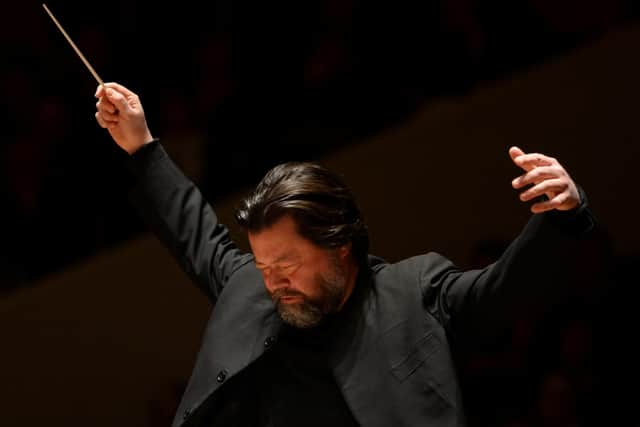Music review: SCO, Joseph Swensen & Maximiliano Martín, Queen’s Hall, Edinburgh
SCO, Joseph Swensen & Maximiliano Martín, Queen’s Hall, Edinburgh ****
Surely one of the most badly affected casualties of the pandemic, conductor Joseph Swensen’s jazz-inflected evening with the SCO had been cancelled and postponed not once but twice in previous seasons. Was it worth the wait? Undoubtedly – and there was a clear sense of pent-up excitement and enthusiasm to share this raucous, exuberant music with listeners finally being released.
Advertisement
Hide AdAdvertisement
Hide AdDarius Milhaud wrote his ballet score La création du monde in Paris but with the sound of Harlem jazz clubs still ringing in his ears, and Swensen unleashed its skittering rhythms and bluesy harmonies with nonchalant abandon, at times using just a single finger to keep all the wild invention under control. And there was a delicious grit and rawness to the SCO’s playing, with nippy jazz riffs kicked off by bassist Nikita Naumov, gorgeously sultry solos from saxophonist Lewis Banks, and Louise Lewis Goodwin and Tom Hunter clattering their way nimbly through Milhaud’s intricate percussion parts.


But it was SCO principal clarinettist Maximiliano Martín who was the evening’s real star, and who delivered a remarkably eloquent, unforced account of Copland’s Clarinet Concerto. He soared his way through the wide open spaces of the first movement, shaping its airborne melody with an exquisite tonal control that tugged on the heartstrings, then slid sideways convincingly into a playful, unpredictable account of Copland’s jazzy second movement. Martín returned after the interval with Bernstein’s Clarinet Sonata, a less immediately crowd-pleasing work but performed with panache all the same, especially the elegantly shaped twisting melodies of its opening.
Swensen closed his evening back in Paris, where Poulenc introduced music-hall rowdiness to classical sophistication in his breathless Sinfonietta, which the conductor all but danced his way through. It made for a spiky, sparkling, high-definition closer to a concert that had perhaps offered a little too much of very similar things, but with unfailing flair and verve all the same.